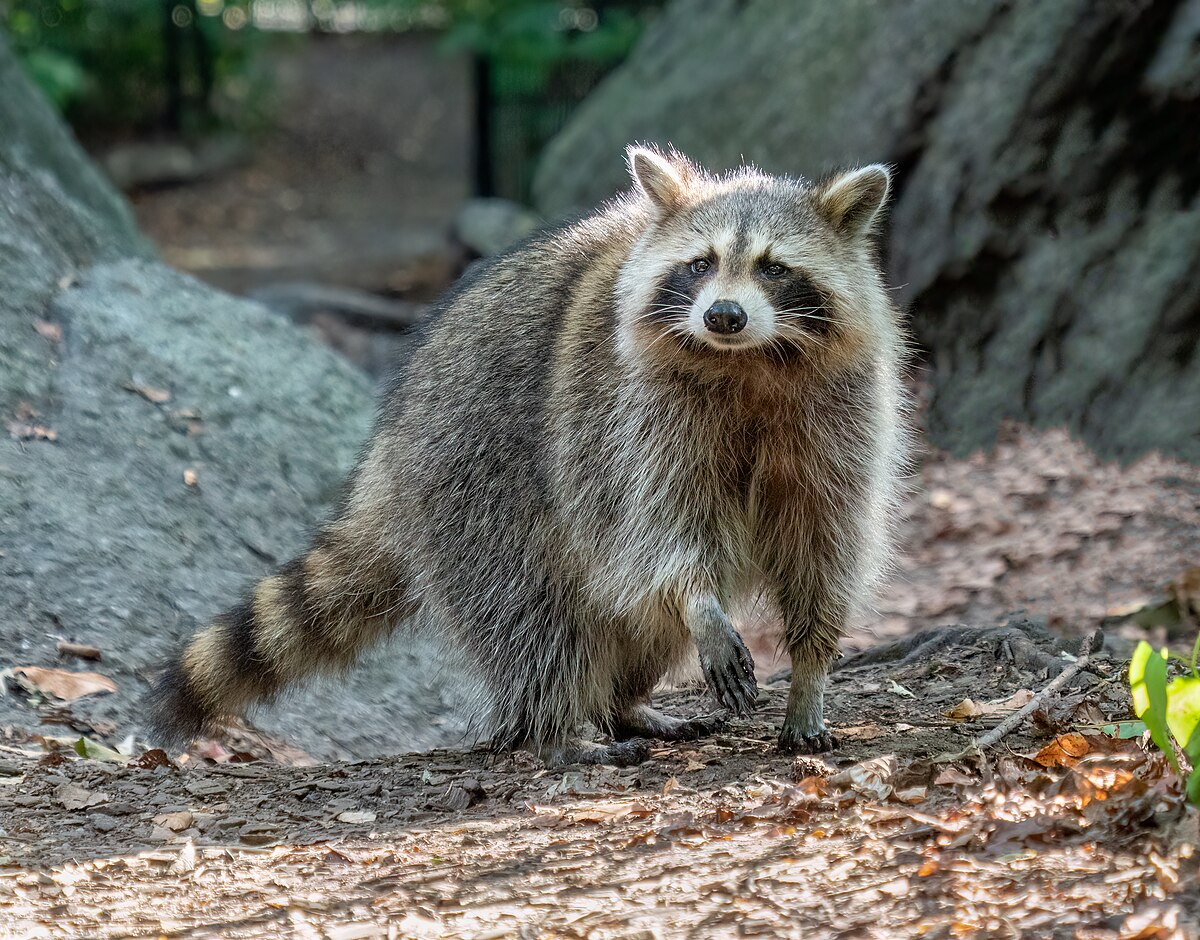If you’ve ever watched a raccoon wash food in a creek or sneak through the night with its mischievous eyes, you might have thought about having one as a pet. These clever, curious animals seem friendly and trainable—almost like cats with hands. But is it legal to own a raccoon in Ohio as a pet? That’s a question every would-be owner must answer before bringing one home.
Raccoons are wild animals by nature. They’re not domesticated, and their behavior can shift from playful to unpredictable very quickly. Because of that, most states—Ohio included—regulate their ownership carefully. While you might spot videos of “pet raccoons” online, the legal side of keeping one in your home is far more complex.
This article explores everything you need to know before deciding. We’ll look at Ohio’s laws, required permits, raccoon care and costs, safety concerns, and why some experts caution against keeping these wild creatures as companions.
Understanding Ohio’s Law on Owning Raccoons

Wildlife Belongs to the State
In Ohio, raccoons are classified as wild animals, which means they legally belong to the state until lawfully obtained through proper channels. The Ohio Revised Code (Section 1531.02) clearly states that wild animals cannot be privately possessed unless legally confined or held by permit.
This means you can’t simply find a baby raccoon in your backyard and decide to raise it. That would be considered unlawful possession of wildlife. Instead, the raccoon must come from a licensed breeder or be acquired through a valid permit issued by the Ohio Department of Natural Resources (ODNR).
Can You Own One? Yes—But Only with a Permit
Unlike some states that completely ban raccoon ownership, Ohio does allow it under specific circumstances. You must obtain what’s called a Noncommercial Wild Animal Propagation Permit. This license allows individuals to keep certain native species, including raccoons, for noncommercial purposes such as education, rehabilitation, or personal companionship.
Without this permit, simply keeping a raccoon—even a captive-bred one—can result in fines, confiscation, or euthanasia of the animal.
How to Legally Own a Raccoon in Ohio
1. Obtain the Proper Permit
To keep a raccoon legally in Ohio, apply for the Noncommercial Wild Animal Propagation Permit through the ODNR Division of Wildlife. The application form requires:
- Your personal details and intended purpose for owning the raccoon
- Detailed enclosure plans (size, structure, materials)
- Veterinary information confirming disease-free status
- Proof the raccoon is captive-bred, not taken from the wild
- A small application fee (usually under $50)
Once submitted, ODNR officers may inspect your facility to confirm safety and compliance before approving your permit.
2. Purchase from a Licensed Breeder
Only buy a raccoon from a licensed and inspected breeder. It is illegal to capture a raccoon from the wild or buy one from unapproved sellers. Captive-bred raccoons are typically raised with human interaction, making them slightly more manageable, though still wild at heart.
When buying, request documentation proving the animal’s legal origin and health certification. Always check for current vaccinations against rabies and distemper.
3. Meet Local and Federal Regulations
Some counties or cities in Ohio enforce stricter exotic-pet ordinances than the state itself. Before applying for a permit, call your local animal control or zoning office to verify additional rules.
If your raccoon comes from another state, you’ll also need a veterinary health certificate confirming the animal is disease-free before crossing state lines.
4. Prepare the Right Enclosure
The ODNR requires that all raccoons kept in captivity have secure, humane housing. The enclosure must be:
- Escape-proof (raccoons are master escape artists)
- Spacious enough for climbing and exploration
- Equipped with enrichment features such as branches, hammocks, or toys
- Protected from extreme temperatures and direct sunlight
Outdoor enclosures should be covered with mesh or metal roofing to prevent escape and intrusion by other wildlife.
What It’s Really Like Owning a Raccoon
Behavior and Temperament
Raccoons are remarkably intelligent. Studies show they can solve complex puzzles and remember solutions for up to three years. However, this same intelligence makes them mischievous and difficult to control in a household setting.
They love to open cabinets, unscrew lids, turn on faucets, and dismantle electronics. Even if hand-raised, raccoons may bite when startled, especially during mating season or hormonal changes.
While some owners successfully bond with their raccoons, most report that they behave more like toddlers than pets—curious, demanding, and occasionally destructive.
Dietary Needs
Raccoons are omnivorous and require a varied diet. A healthy captive diet may include:
- High-quality cat or dog food as a protein base
- Fresh fruits and vegetables (grapes, apples, sweet corn, berries)
- Insects, eggs, and cooked poultry
- Occasional grains or nuts
Avoid feeding junk food or excessive sweets, as obesity and liver disease are common in captive raccoons.
Health and Veterinary Care
Veterinary care is another major challenge. Not all vets treat raccoons due to legal or insurance concerns. You’ll need an exotics-certified veterinarian for vaccinations, parasite control, and dental care.
Raccoons can carry rabies, leptospirosis, and roundworms, which are transmissible to humans. Regular check-ups and strict hygiene are essential for your safety.
Costs of Keeping a Raccoon in Ohio
Owning a raccoon can be far more expensive than most people expect. Here’s an estimated breakdown:
Expense |
Average Cost |
|---|---|
Permit and inspection fees |
$25–$50 per year |
Raccoon purchase price |
$300–$700 |
Large enclosure construction |
$1,000–$3,000 |
Annual food supply |
$600–$900 |
Veterinary care and vaccinations |
$300–$600 annually |
Enrichment and toys |
$100–$200 annually |
These costs can easily exceed $1,500 per year after the initial setup. Since raccoons can live up to 20 years in captivity, the total lifetime cost may surpass $20,000.
Risks and Challenges of Owning a Raccoon
1. Aggression and Biting
Even friendly raccoons may lash out without warning. They’re territorial and prone to unpredictable aggression as they mature. A bite from a raccoon can require rabies shots and may legally mandate euthanasia of the animal for testing.
2. Destruction and Property Damage
Their dexterous hands make them capable of opening doors, breaking screens, and chewing through furniture. Many owners find it nearly impossible to fully “raccoon-proof” a home.
3. Escape Risks
Raccoons are expert climbers and can squeeze through small openings. If yours escapes, local authorities may treat it as a wild nuisance animal, even if microchipped.
4. Disease Transmission
Raccoons can spread serious diseases to humans and other pets. Common zoonotic threats include:
- Rabies
- Leptospirosis
- Raccoon roundworm (Baylisascaris procyonis)
- Salmonella
Because of these risks, owners must maintain impeccable hygiene and ensure up-to-date vaccinations.
Ethical and Environmental Concerns
While keeping a raccoon may be legal with a permit, wildlife organizations strongly discourage it. The Ohio Wildlife Center emphasizes that wild animals belong in the wild and often suffer in captivity.
Even when raised kindly, a raccoon’s natural instincts—like foraging, roaming, and climbing—are difficult to satisfy indoors. Many captive raccoons experience stress, depression, or self-injury due to confinement.
Moreover, releasing a domesticated raccoon back into the wild is often impossible. They lack survival skills and can introduce diseases to native populations.
Tips for Caring for a Pet Raccoon in Ohio
1. Start Early and Socialize Carefully
If you legally acquire a baby raccoon, begin gentle handling early but avoid excessive dependency. Use positive reinforcement rather than punishment, as raccoons respond poorly to force.
2. Provide Plenty of Enrichment
Mental stimulation prevents boredom and destructive behavior. Offer puzzles, safe chew toys, climbing structures, and water tubs—they love washing food!
3. Maintain a Routine
Raccoons thrive on structure. Feed at consistent times, clean enclosures regularly, and schedule quiet rest periods during the day (raccoons are mostly nocturnal).
4. Find an Experienced Exotic Vet
Before adoption, locate a veterinarian who treats raccoons. Routine exams should include parasite checks, vaccinations, and diet evaluations.
5. Stay Compliant with State Law
Renew your ODNR permit yearly, keep detailed records, and be prepared for inspections. Never sell, trade, or breed your raccoon without the appropriate additional license.
Alternatives to Owning a Raccoon
If you love raccoons but aren’t ready for the legal and practical responsibilities, consider safer alternatives:
- Volunteer at a wildlife rehabilitation center – You can interact with raccoons legally and help injured wildlife return to the wild.
- Adopt a domestic pet – Ferrets, sugar gliders, or certain exotic cats may satisfy your desire for a playful companion with far fewer legal hurdles.
- Support raccoon conservation efforts – Donate to wildlife sanctuaries or participate in educational programs.
These options allow you to appreciate raccoons without contributing to potential harm or legal risk.
FAQs About Owning a Raccoon in Ohio
Can I take a baby raccoon I found in my backyard and raise it?
No. Taking wild raccoons from nature is illegal in Ohio. Even orphaned kits should be taken to a licensed wildlife rehabilitator, not kept as pets.
Do raccoons make good pets?
Generally, no. While they can be affectionate when young, they become unpredictable, aggressive, and destructive with age. They require constant attention and specialized care.
Are raccoon bites dangerous?
Yes. Raccoon bites can transmit rabies and other infections. Medical treatment and animal quarantine are legally required after a bite incident.
How long do raccoons live in captivity?
Captive raccoons can live 10–20 years, much longer than their wild counterparts, which average 3–5 years. However, longevity requires expert care and proper housing.
Is it legal to sell raccoons in Ohio?
Only licensed individuals with a commercial wildlife propagation permit can sell or trade raccoons. Doing so without a permit is a violation of both state and federal law.
Can I bring my raccoon to another state?
No, not without checking other states’ exotic-animal import laws. Many states prohibit raccoon ownership entirely, and transporting one across borders can lead to confiscation.
Final Thoughts
So, is it legal to own a raccoon in Ohio as a pet? The answer is yes—but only under strict conditions. You must acquire your raccoon legally from a licensed breeder, hold a valid ODNR permit, and meet housing, health, and safety standards.
While the idea of having a raccoon companion might sound charming, the reality is complicated, costly, and demanding. Raccoons remain wild at heart, and no amount of training can erase their instincts.
If your fascination with raccoons comes from admiration rather than ownership, consider helping them through conservation or wildlife education instead. That way, you can enjoy their charm and intelligence—without the legal and ethical challenges of keeping one as a pet.






